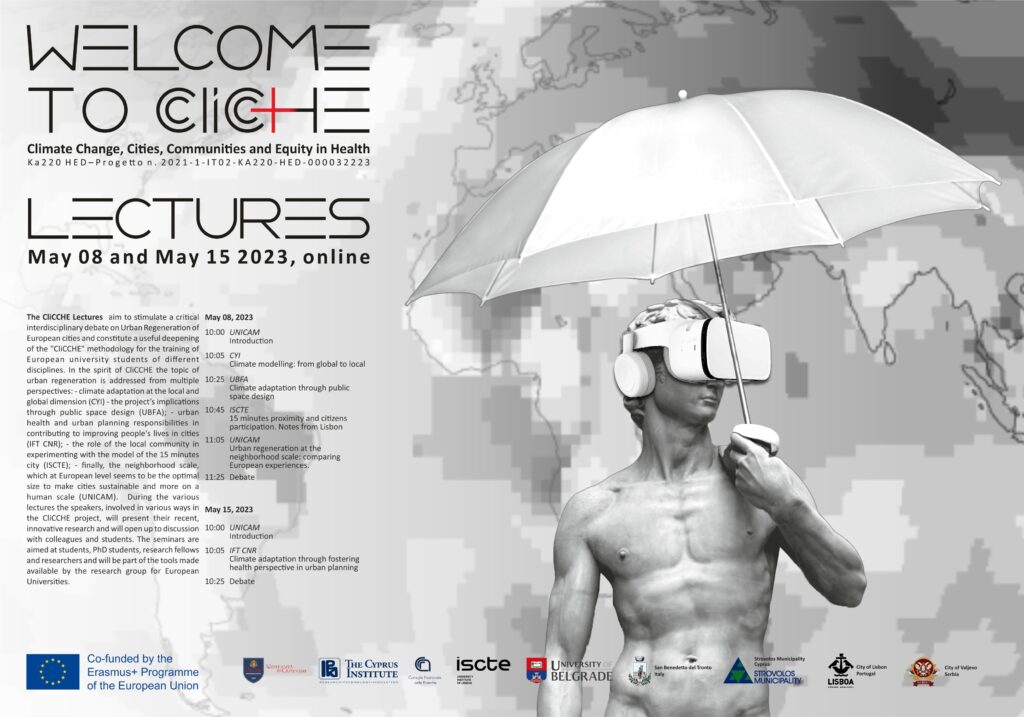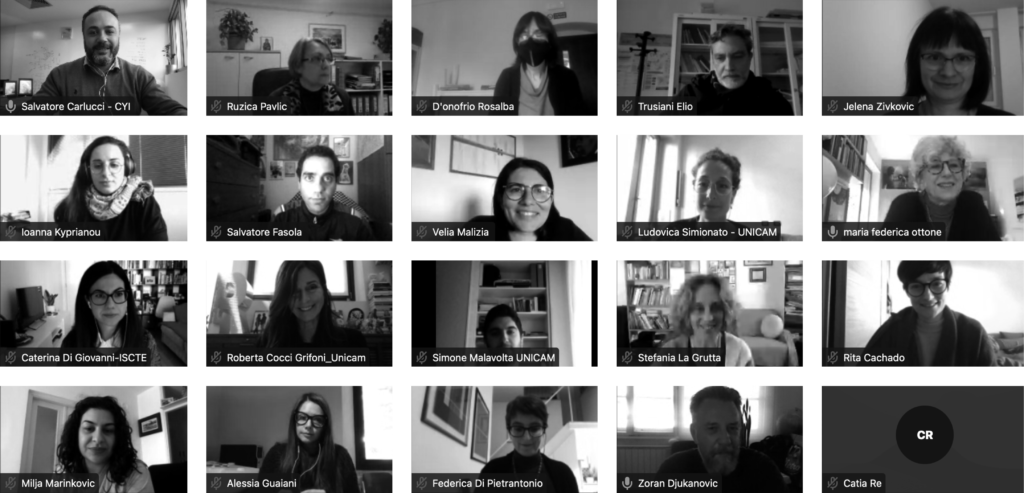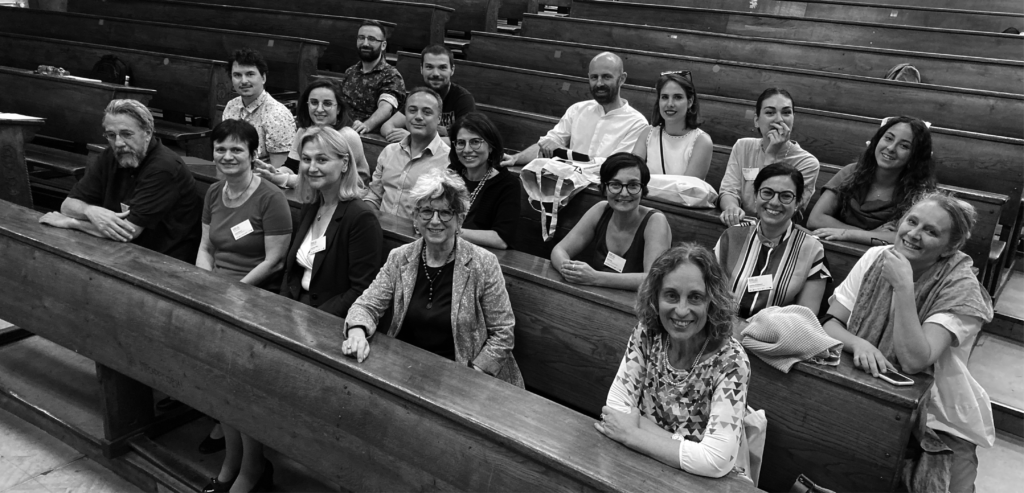The CliCCHE Lectures aims to stimulate a critical interdisciplinary debate on Urban Regeneration of European cities and constitute a useful deepening of the “CliCCHE” methodology for the training of European university students of different disciplines. In the spirit of CliCCHE the topic of urban regeneration is addressed from multiple perspectives: – climate adaptation at the local and global dimension (CYI); – the project’s implications through public space design (UBFA); – urban health and urban planning responsibilities in contributing to improving people’s lives in cities (IFT CNR); – the role of the local community in experimenting with the model of the 15 minutes city (ISCTE); – finally, the neighborhood scale, which at European level seems to be the optimal size to make cities sustainable and more on a human scale (UNICAM). During the various lectures the speakers, involved in various ways in the CliCCHE project, will present their recent, innovative research and will open up to discussion with colleagues and students. The seminars are aimed at students, PhD students, research fellows and researchers and will be part of the tools made available by the research group for European Universities.
Monday 8th May at 10:00 CET
10:00-10:05 / Introduction / UNICAM
10:05-10:25 / Climate modelling: from global to local / CYI
10.25- 10:45 / Climate adaptation through public space design / UBFA
10:45-11:05 / 15 minutes proximity and citizens participation. Notes from Lisbon / ISCTE
11:05-11:25 / Urban regeneration at the neighborhood scale: comparing European experiences / UNICAM
11:25-12:00 / Debate
Monday 15th May at 10:00 CET
10:00-10:05 / Introduction / UNICAM
10:05-10:25 / Climate adaptation through fostering health perspective in urban planning / IFT CNR
10:25-10:45 / Debate
Playlist on YouTube:
01 Introduction to Clicche Lectures
02 Climate adaptation through public space Design
03 15 minutes proximity and citizens participation
04 Urban regeneration at the neighborhood scale comparing European experiences
06 Climate modeling from global to local
07 Climate adaptation through fostering health perspective in urban planning



